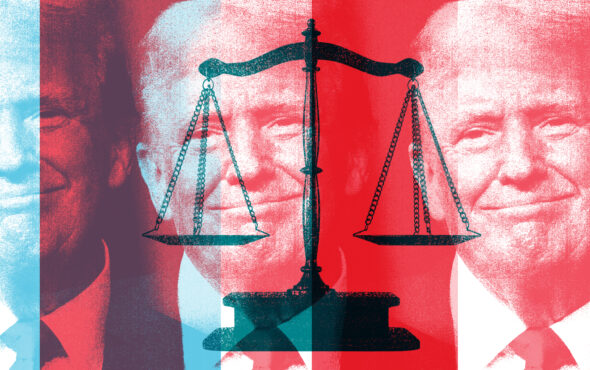
Since 1981, Germany’s trans, non-binary and intersex communities were forced to contend with the so-called ‘Transsexual Law’ (TSG for short) if they wanted to legally change their name and gender marker.
Entailing a long, costly and often discriminatory review process, individuals were required to present to a local court with reports by two experts “sufficiently familiar with the particular problems of transsexualism” who could attest that, in all likelihood, they would not want to revert back to the gender they were assigned at birth.
In the many years since the TSG was first implemented, the proportion of people who reversed their decision remained the same: around 1%. Nevertheless, under the TSG, people had to undergo a months-long, degrading assessment process, which was not only expensive at – costing around €2,000 – but also, allegedly, asked for intimate details about the candidate’s childhood and sexual past.
Some of the law’s most dehumanising regulations, thankfully, were classified as unconstitutional over the years; such as the stipulations requiring individuals be unmarried (forcing some to attain a divorce in order to be eligible) which was repealed in 2008, or those requiring that candidates be infertile or undergo sterilisation, which was repealed in 2011.
Understandably, the pain and injustices of TSG have run deep, among multiple generations, during the legislation’s 44 year history. However, on 12 April 2024, the act was finally replaced by the new Selbstbestimmungsgesetz (SBGG), or Self-Determination Law.
View this post on Instagram
The German government confirmed in February 2021 that they were working on a draft. Now, three years later, the law has been passed and will come into effect from November of this year. Chief among its benefits is that it hugely simplifies the process of updating your name and gender marker: trans, non-binary and intersex folks will be able to present themselves at a civil registry and update their information via a simple declaration. No court deliberation, medical certificates or external opinions will be required.
In order to protect people from forced outing, the new law will continue to prohibit the research and disclosure of trans+ folks’ previous gender markers or deadnames. If an affected person is intentionally harmed by this disclosure, the individual who released the information will be subject to a fine. The hope is simple – less discrimination and more self-determination. Human rights organisations and activist groups have been advocating for these changes for years now.
Large sections of Germany’s queer community are celebrating the successful decision on the Selbstbestimmungsgesetz, but not everyone is happy with the new law. For example, the advocacy group Selbstbestimmung Selbst Gemacht (in English: Self-Determination, Self-Made), submitted its own proposal last summer to compensate for what it sees as the shortcomings of the current draft. It calls for “immediate compensation” for people who have been wronged under the TSG, an answer to questions on domiciliary rights (It is up to a woman’s sauna owner, for example, to decide who can enter the establishment, leading many trans people to fear they will continue to be discriminated against based on their “passing”), and special protection for trans+ refugees which the new law does not contain.
This law contains the promise that self-determination is a human right and that it must be up to each person to make their own decisions about themselves and their body.
It’s not just Self-Determination, Self-Made who have been vocal about their concerns with the law. Additionally, in May 2023, Germany’s Federal Association of Intersex People also commented on a draft version of the law – in this case critiquing the lack of inclusion for intersex people in some sections of the bill.
Reservations such as the above remind us that the fight is still ongoing and that conversations around self-determination are far from done. But many see the new Selbstbestimmungsgesetz as a positive start and hopefully a major step towards making the lives of Germany’s trans, non-binary and intersex communities easier. While lots of questions remain unanswered, this law contains the promise that self-determination is a human right and that it must be up to each person to make their own decisions about themselves and their body.
In order to explore how Germany’s trans+ community is reacting to the news, GAY TIMES spoke to three prominent voices – each committed to their community’s rights in a public-facing capacity – to find out what changes they hope the law will bring about and whether they think it goes far enough.
View this post on Instagram
Phenix, she/her
Actress, singer and artist based in Berlin.
The TSG, which was progressive 40 years ago, is of course outdated today and portrays trans people as individuals who first need a psychological diagnosis in order to make personal decisions.
This type of legislation has an impact on how we are perceived as a community. Are we people who can “change” our gender entry and name relatively easily, or people who need to see a psychiatrist first to prove that we are sane?
Respect, common sense and self-initiative when it comes to education about trans people – I would like to see more of that in the future.
This law will clarify some things legally. Nevertheless, there are still so many people who have a certain fear of contact with queer people. Of course, I want to give these people the benefit of the doubt but sometimes I find it a bit difficult because there are so many educational opportunities out there.
So many people, including me, put out content that you can use to learn about [the trans+ community]. A lot of hurt can also be avoided by using common sense – not asking me at the supermarket checkout whether I am planning a genital operation, for example. That should be logical. Respect, common sense and self-initiative when it comes to education about trans people – I would like to see more of that in the future.
View this post on Instagram
Avi Jakobs, dey/she/him
TV personality based in Berlin.
This new law will be a huge relief for lots of people. It will take away a lot of people’s power over us if the law states that all people are free to decide who they are.
At the same time, though, it is only the bare minimum. There is still so much room for improvement. After this first, important step, we can continue to work towards a fairer, more diverse society. Then we can talk about compensation for everything that has been done to so many over the last forty years under the TSG.
After this first, important step, we can continue to work towards a fairer, more diverse society.
In the future, I would like to see more visibility for non-binary people in everyday life and in public. That the fear which queer, non-binary people feel when they go into bathrooms and changing rooms is also recognised. What about our point of view? Why are we not allowed to feel safe? I want us to be included in studies, I want us to be considered. It is still dangerous to come out in this society. Let’s take away some of that fear. We’ve always been here, we’ve just had our platform and our rights taken away from us. Self-determination gives us that power back.
View this post on Instagram
lynn t. Musiol, they/them
Theatre-maker and writer based in Berlin.
As soon as I am legally recognised, I am recognised differently in society. At the same time, from an activist’s perspective, there are points in this law that are still inadequate. The legal status of intersex people, for example. Or that people without a residence permit cannot make use of this law. I find this is degrading and it may lead to further resentment. Nonetheless, in terms of my individual recognition as a non-binary person, this law would be a great relief – financially, too – and it is a first step in the right direction.
State recognition is important, but queer and trans life has always been about self-organisation.
The question remains as to what it means to be labelled “diverse” [the third gender marker recognised by the German civil registry]. Most people who change their entry are white, racialised people often have to really consider whether they want to have “diverse” written in their passport due to discussions with family or at the airport, and experiences of violence.
In this context, the supplementary ID card [the Ergänzungsausweis, an additional card which displays your chosen name and correct pronouns and is valid in combination with an official form of identification] is great – it’s self-organised, subversive, easily accessible and a great option for many people. State recognition is important, but queer and trans life has always been about self-organisation.
This feature is taken from the May 2024 issue of GAY TIMES. Head to Apple News + for more exclusive features and interviews from the issue.

